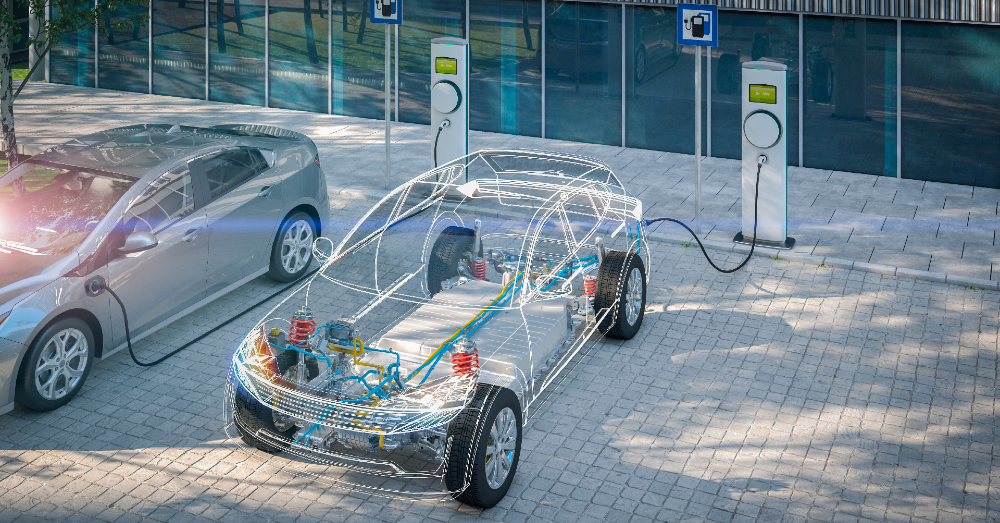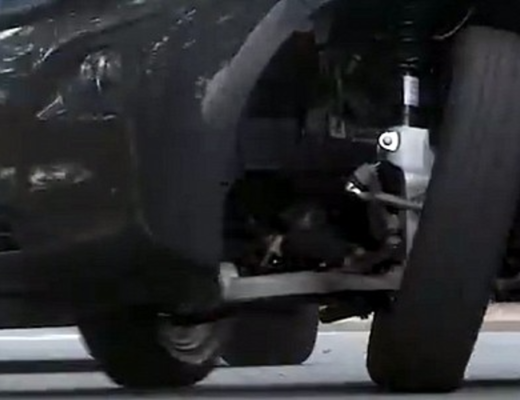When you want to drive an electric vehicle do you need special EV tires? It might seem strange to you, but yes, you need tires made for this type of vehicle.
In actuality, you shouldn’t be surprised that you need special tires for a vehicle type that’s new to the market. Even though electric vehicles are replacing many of the passenger cars, SUVs, and trucks we currently drive, they require different tires. To understand more about these tires, we’ve got to take a journey back in time to see what brought about this need.
Aren’t Electric Vehicles New in the Automotive World?
No, electric vehicles date back to long before the internal combustion engine was developed. Most of these early electric vehicles were motorized wagons and stagecoaches that could drive without the use of horses. These electrified models were so popular that Porsche developed a hybrid gas/electric vehicle in 1901, yes, 1901, and Edison worked to improve battery technology.
Strangely, the early days of the auto industry shuttled off the electric models in favor of gasoline engines. The early 1910s saw one third of all vehicles on the road using electricity, but by the 1920s, that had changed. Electric vehicles were no longer part of the landscape.
Thank You Model T
Why didn’t we need to worry about EV tires until recently? Thank the Model T. Henry Ford developed the moving assembly line and priced the Model T to the level that it became affordable for nearly every American. This car was cheap, rugged, reliable, mass-produced and everyone was buying them. Because oil and gas were both cheap, most drivers enjoyed this car and drive wherever the desired. This was certainly a better solution to transportation than the early electric vehicles that has batteries that were even more limited than what we face today.
The Future is Now, and It’s Been Happening
How can the future be part of the present and the past? The path to where we are now and where we’re going came back around when the EV1 from GM came to the market and Toyota brough the Prius. Since the introduction of the Prius, many companies have worked to bring more efficient means of travel to cars. Today, we have more electric vehicles than ever before and these cars need special EV tires. The future shows us a world with at least half of the cars operating purely by electricity.
Why do Electric Vehicles Require Special Tires?
The electric vehicles of today are much better than the early models and even better than what we saw with the first Nissan Leaf or early Tesla Model S versions. With that in mind, tire makers have to consider the following qualities that are inherently part of the electric vehicles we want to drive. Some of the special considerations for these tires are:
- EVs are heavier than gasoline vehicles because of the battery packs. The weight isn’t distributed the same way in an EV as it is in a traditional vehicle. This changes the stress points and load requirements for the tires used in EV models.
- Nearly instant torque from an EV means the rubber and tread of that vehicle must be able to keep up. You don’t want to rip the rubber off your tires when you hit the accelerator.
- EV tires typically include a foam inlay to keep the highway noise to a minimum. This is important because there isn’t any engine noise for these models and this foam adds to the silent operation of these electric vehicles.
- We know tires increase or decrease fuel mileage based on inflation levels and the same can be said of electric vehicles. Engineers need to get as much range out of these vehicles as possible and that can mean reduced weight and better aerodynamics for the tires.
The tires for electric vehicles have to be made to meet the performance expectations of these cars, even if the vehicle is a commuter vehicle. The considerations for EVs is in addition to the regular requirements of these tires including the ride quality, handling, road manners, speed rating, traction, braking, and performance desired while driving.
Which Tires Should You Use?
The right EV tires have to match up to the driving habits and vehicle you drive. Let’s look at some different tires for different situations.
Passenger and Touring Tires
When your normal driving is on roads during your commute, running errands, toting your kids around, or driving out to dinner on Friday, you need passenger and touring tires. Some of the best options for these tires are:
- Bridgestone Turanza Quiet Track
- Goodyear Assurance CS Fuel Max
- Pirelli Cinturato P7 All Season Plus
- Michelin Energy Saver A/S
- Continental ContiProContact
Performance Tires
When you’re after the EV tires required to handle the toughest driving on the tarmac, you want performance tires. Many modern EV performance vehicles use these tires already and they give you the durability necessary to handle high speeds and hard cornering. The rubber resists overheating and the aggressive tread handles all conditions. Some of the options for high-performance tires on your electric vehicle are:
- Michelin Primacy MXM4
- Continental PureContact LS
- Toyo Extensa A/S
- Pirelli Cinturato P7
Tires for Better Driving Range
Tires made with low rolling resistance offer you a bit of an increase in driving range on a full charge of the batteries. These tires have oils and ingredients that make them more eco-friendly while offering you the extra range you desire. Some of the best low rolling resistance tires are:
- Bridgestone Ecopia EP20
- Pirelli Scorpion Verde
- Continental Cross Contact LX25
- Hankook Kinergy Eco
Winter Tires
Yes, you can get some winter tires for your electric vehicle to make sure you have the tread depth you need and more aggressive tread patterns to help you get through the cold white stuff. Some of the best winter EV tires are:
- Bridgestone Blizzak LM-32
- Pirelli Winter Sottozero 3
- Nokian Hakkapeliitta R2
Now that you know more about where electric vehicles came from, their specialized needs, and a list of tires that could be right, which EV tires will you choose for your ride?




